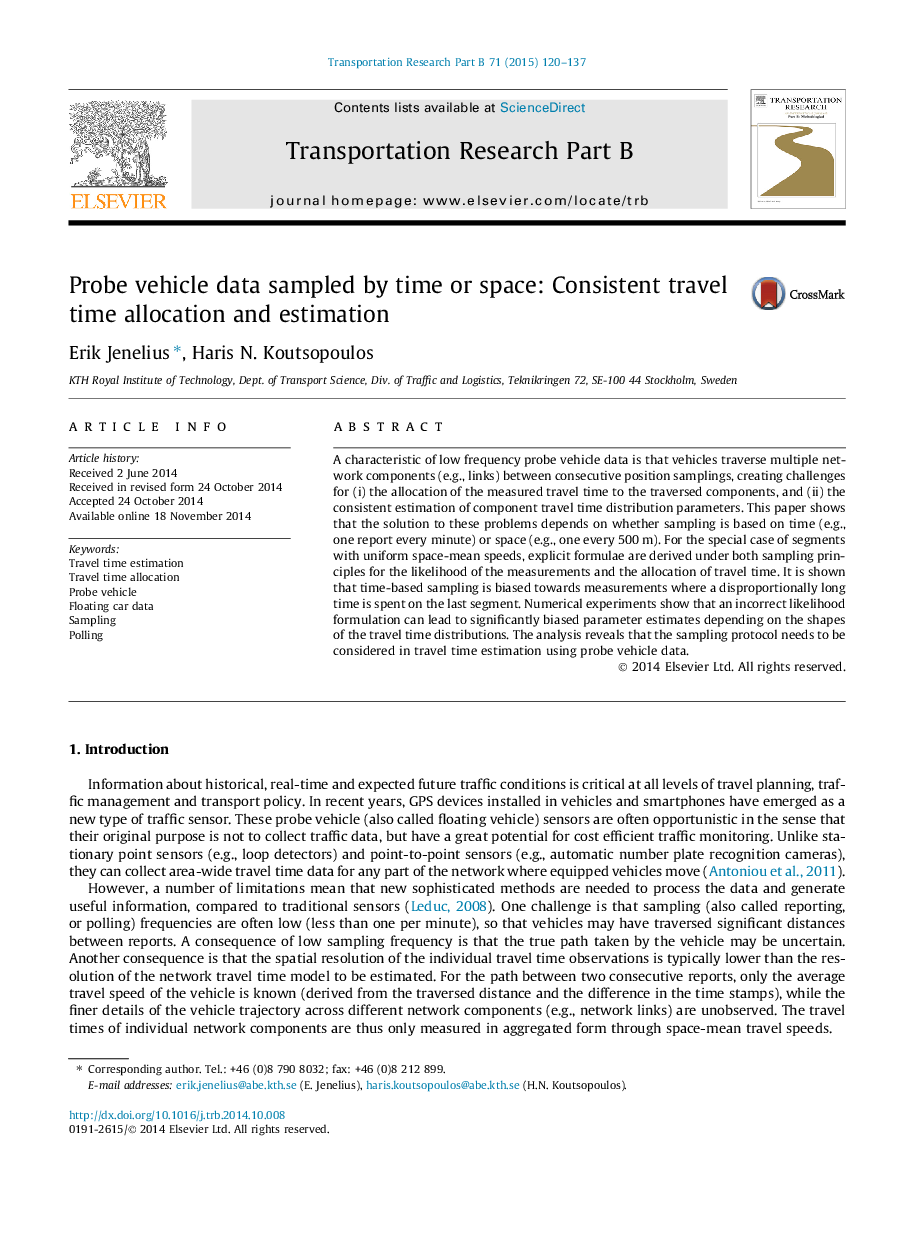| Article ID | Journal | Published Year | Pages | File Type |
|---|---|---|---|---|
| 1131820 | Transportation Research Part B: Methodological | 2015 | 18 Pages |
•Analysis of probe vehicle data sampled by time or space.•Sampling protocol must be considered for unbiased travel time estimation.•Sampling protocol determines allocation of travel time to traversed segments.•Correct likelihood functions are derived under space- and time-based sampling.•Incorrect assumptions about sampling protocol may lead to large estimation bias.
A characteristic of low frequency probe vehicle data is that vehicles traverse multiple network components (e.g., links) between consecutive position samplings, creating challenges for (i) the allocation of the measured travel time to the traversed components, and (ii) the consistent estimation of component travel time distribution parameters. This paper shows that the solution to these problems depends on whether sampling is based on time (e.g., one report every minute) or space (e.g., one every 500 m). For the special case of segments with uniform space-mean speeds, explicit formulae are derived under both sampling principles for the likelihood of the measurements and the allocation of travel time. It is shown that time-based sampling is biased towards measurements where a disproportionally long time is spent on the last segment. Numerical experiments show that an incorrect likelihood formulation can lead to significantly biased parameter estimates depending on the shapes of the travel time distributions. The analysis reveals that the sampling protocol needs to be considered in travel time estimation using probe vehicle data.
